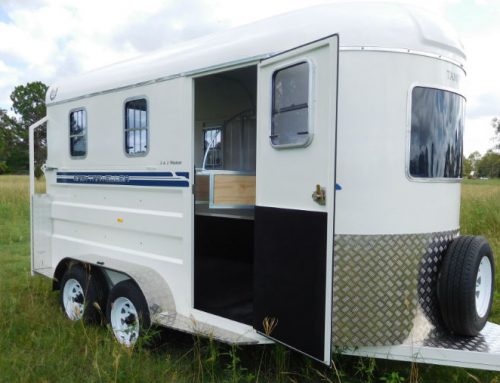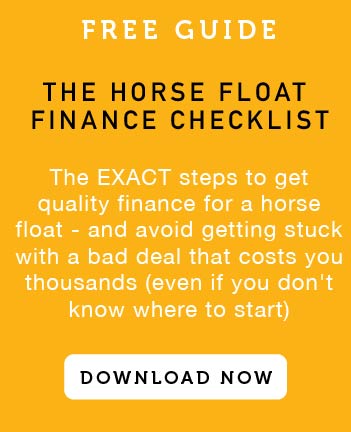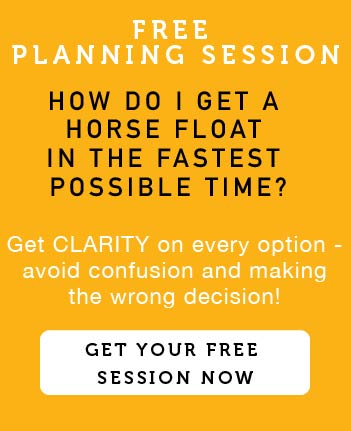It’s no secret that Horse Float buyers are becoming more savvy and less accepting of hard sales techniques. Therefore to survive and thrive in this age of unlimited information and options, businesses in the horse float industry might changing their approach to selling floats. Make way for the future of customer acquisition, customer retention and overall business success: consultative selling. Some of Australia’s leading sellers of Horse Floats already have.
Consultative selling involves the salesperson acting in a manner which more closely resembles that of a consultant. Rather than pushing customers into a purchase with profit or commission as an evident priority, the salesperson genuinely offers real product advice which depicts as an industry expert. In doing this, you will win more new customers and create an experience that keeps them coming back.
While we understand that our Finance Referral Partners are already well equipped when it comes to offering expert advice and making customer comfortable, In this post we aim to refresh your minds by exploring the 6 key points you should consider on the path to mastering the consultative sale.
1 – Know your stuff
The best way to get a prospective customer to believe that you are an expert in all things Horse Floats is to actually be just that. A good consultative salesperson can answer any questions about their product and how it will be more suited to the customer’s needs than the competing product. If you give them answers they will them go looking for them on the internet which certainly can, while at the same time sending them in the direction of your competitors. This is why it is so important to be a lifelong learner regardless of how long you’ve been in the horse float game.
2 – Take a step back and relax
When you are a small business owner or a salesperson you can often feel pressured to convert every lead into a sale, which causes you to come of as less uncertain of yourself and less reliable than if you were relaxed about the interaction with the customer. You must understand that your only job is to connect a product with the people who actually need it. You are not there to win an argument with the customer over whether or not your product is right for them. So relax, and do your absolute best to ensure your customer’s satisfaction with the product and the experience of buying it.
3 – First impressions count
Your very first interaction with the customer will determine whether or not they see you as salesman or an expert. The vast majority of people are very capable of framing conversations to achieve an objective. In a sales situation, the framing process involves letting the customer know who you are and what your intention is (in your case the intention is to help them find the right float for them), determining what’s important to the customer and then seeking their permission to offer assistance in finding the product they are after. If they give you their permission you can then go on to match them with the product which is best suited to them based on our expert knowledge.
4 – Ask the questions
Once you are on the way to building a good rapport with the customer it is time to ask the questions that will help you determine whether your offering is right for the them. These will often include but are not limited to:
- What sort of float do you think you want, and why?
- In what conditions will you use the float?
- Have you considered how much you’re going to spend?
The answers to these questions will be the ammunition that allows you to best meet their needs and separate yourself from the competitors who have not taken the time to ask these questions.
5 – Offer your suggestions
Now that you’ve taken the time to discover the details of their needs, your customer is ready for you to offer your expert suggestions as to why product Z is going to suit them better than products X and Y. This is also the stage at which you explain the features and benefits which separate one product from the next.
6 – Stay cool. Don’t blow it.
Despite that you’ve advised the customer as to which product is right for them and they seem to be in agreeance, you can still blow it by pushing them into the deal. To close this deal and to earn a repeat customer you must keep up the consultative salesperson method to and beyond the point of advising them where to sign and with which pen.
Not only is consultative selling a great way to sell more units while maximising customer satisfaction, it’s actually far more enjoyable for you as a small business owner or a salesperson if you also see you as a knowledgeable who loves what they do. We hope you’ve learned something new. Now go forth, relax, have fun and sell while trusting in this Benjamin Jowett quote; “You’ve got to be success minded. You’ve got to feel that things are coming your way when you’re out selling; otherwise, you won’t be able to sell anything.”




